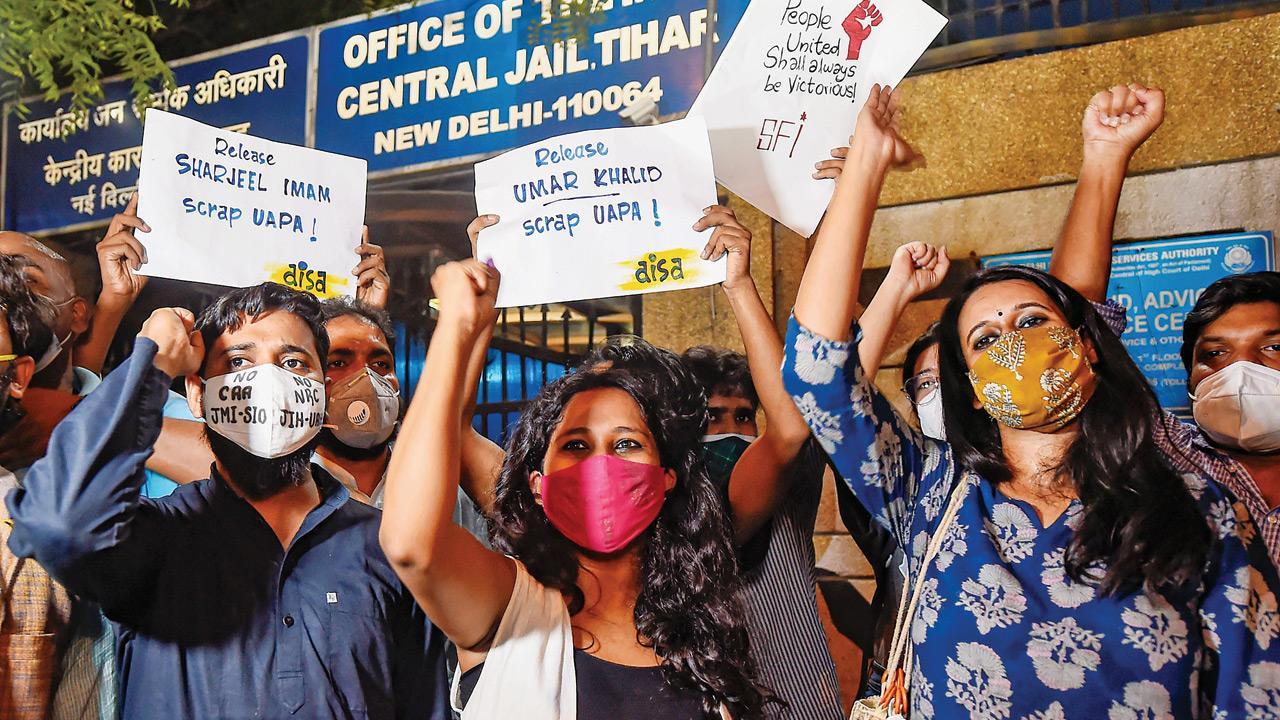One of the architects of the ruling that capped application of UAPA to only India’s security, the St Stephen’s alumnus shines with his legal philosophy

Bhambhani wrote the three orders of bail for Tanha, Kalita and Narwal, remarkable for their lucidity and logic
Years ago, when Anup Jairam Bhambhani began to argue a case in one of Delhi’s district courts, the judge remarked, “You look like film-star Naseeruddin Shah.” Bhambhani’s face flickered with surprise. “Why, no one has told you this before?” the judge asked, going on to hail Shah as India’s greatest actor.
The judge did not know of Bhambhani’s abiding passion for theatre, a passion no less intense than he had for physics, which he studied at St Stephen’s College, Delhi. A classmate of Bhambhani says he was “very organised and disciplined. This certainly set him apart from all of us.” Yet Bhambhani changed tack, after he read a book by renowned jurist Nani Palkhivala.
In a 2014 interview to the Bar & Bench website, after the Delhi High Court designated him as Senior Advocate, Bhambhani disclosed why he took to law: “If you do pure sciences, what you learn, what you know, what you are doing may not be relevant to the next morning’s newspaper. But if you are doing something like law… it is all so topical and relevant.”
Ever since Bhambhani became a judge of the Delhi High Court, on October 22, 2018, his work has been relevant to newspapers—and the nation. It is Justice Siddharth Mridul and Justice Bhambhani who, contrary to expectations, granted bail to Asif Iqbal Tanha, Natasha Narwal and Devangana Kalita, the three activists who were incarcerated under the Unlawful Activities Prevention Act (UAPA).
The two judges, significantly, limited the application of UAPA to only cases pertaining to India’s security, and shifted the onus on the state to prove, prima facie, a person’s involvement in terrorism before bail could be denied to him or her. Bhambhani wrote the three orders of bail, remarkable for their lucidity and logic.
Earlier, in February 2020, as riots in Northeast Delhi raged, Bhambhani was the second member of the Delhi High Court bench, headed by Justice S Muralidhar, that held a midnight court and ordered the lackadaisical Delhi Police to shift the injured from one hospital to another.
Three months later, when Gautam Navlakha, an accused in the 2018 Elgar Parishad case, applied for interim bail, Bhambhani fixed a date to hear the National Investigation Agency (NIA) in whose custody Navlakha was.
Days before the hearing, NIA shifted Navlakha to Mumbai, prompting Bhambhani to ask the agency to explain its “inexplicable, frantic hurry” in doing so. NIA is rarely asked to account for its actions. Bhambhani’s order was subsequently set aside and his remarks expunged by a Supreme Court bench headed by Justice Arun Mishra, who, much to the dismay of many, was recently appointed the chairman of the National Human Rights Commission.
Luck has, obviously, placed Bhambhani in the proscenium of the judicial theatre, a fact he is likely to accept. In the 2014 interview, Bhambhani defined luck as a “matter of being ready for a chance.” It would seem he had been preparing to take his chance, for instance, by evolving his own legal philosophy, evident from a 2017 piece he wrote in the Outlook magazine on demonetisation.
Bhambhani’s piece began with the assertion that a policy seeking to root out black money could not be faulted on the count of purpose. He then asked: “Can a government, of whichever hue, impose all-around, manufactured hardship upon its people to achieve what it considers necessary for the greater good?” No, he answered, arguing that a civilised society is governed by a set of laws and rules, not by “personal predilections, perceptions and brainwaves of the ‘rulers’.” Bhambhani concluded: “It is not the bounden, nationalistic duty of citizens to suffer whatever the government imposes… Policies cannot be ‘live-tested’ on ordinary people, since that is antithetical to the role of the government in a welfare state. And that is what accountability is all about.”
Bhambhani’s big break was the Outlook brief he got within three years of entering the legal profession. He went on to represent several media outlets, earning the sobriquet of “media lawyer”. His other interest was criminal law. His specialisations explain what he once said: “There are only two things worth fighting for legally – free speech and personal liberty.”
In a 2016 article, Bhambhani critiqued the Information Ministry’s Programme and Advertising Codes, applicable to television channels, for using phrases like what “offends against good taste and decency.” Such elastic terms erode the right to free speech, even though the Supreme Court, Bhambhani pointed out, “frowns upon a law that is so vague that those applying it are in a ‘boundless sea of uncertainty’ as to its precise meaning.” A law posing a threat to a guaranteed freedom has to be precise so that a person of ordinary intelligence knows what is prohibited, Bhambhani concluded. This argument underpins the High Court order on Tanha’s bail.
There is relief in the incestuous circle of Stephanians that Bhambhani has repaired the damage another alumnus, former Chief Justice of India Ranjan Gogoi, inflicted on their alma mater’s reputation through his controversial judgements. Indeed, a soldier of liberty wins cheers, not jeers, as Gogoi must have realised on his first day in the Rajya Sabha.
The writer is a senior journalist. Send your feedback to mailbag@mid-day.com
The views expressed in this column are the individual’s and don’t represent those of the paper.
 Subscribe today by clicking the link and stay updated with the latest news!" Click here!
Subscribe today by clicking the link and stay updated with the latest news!" Click here!









